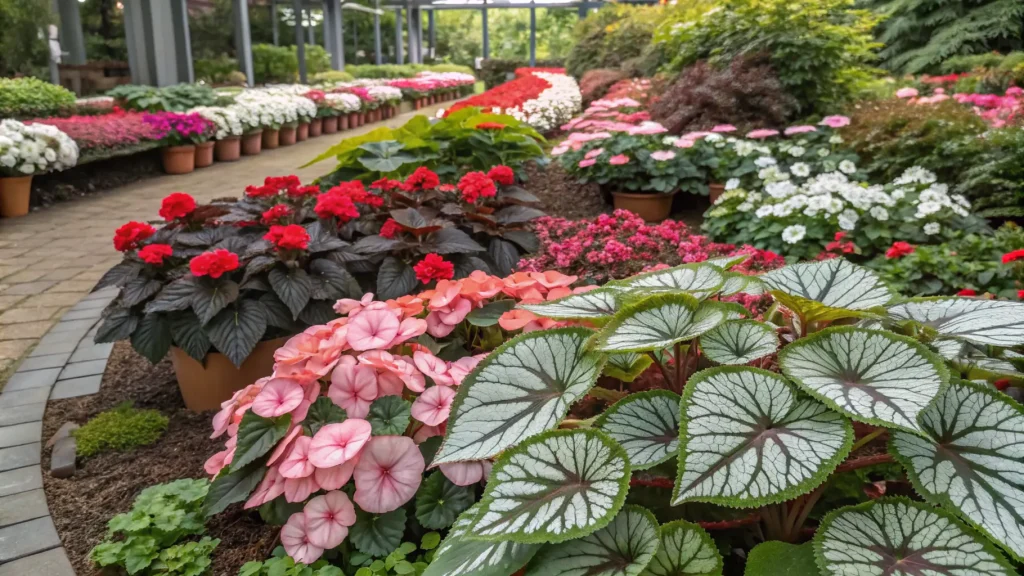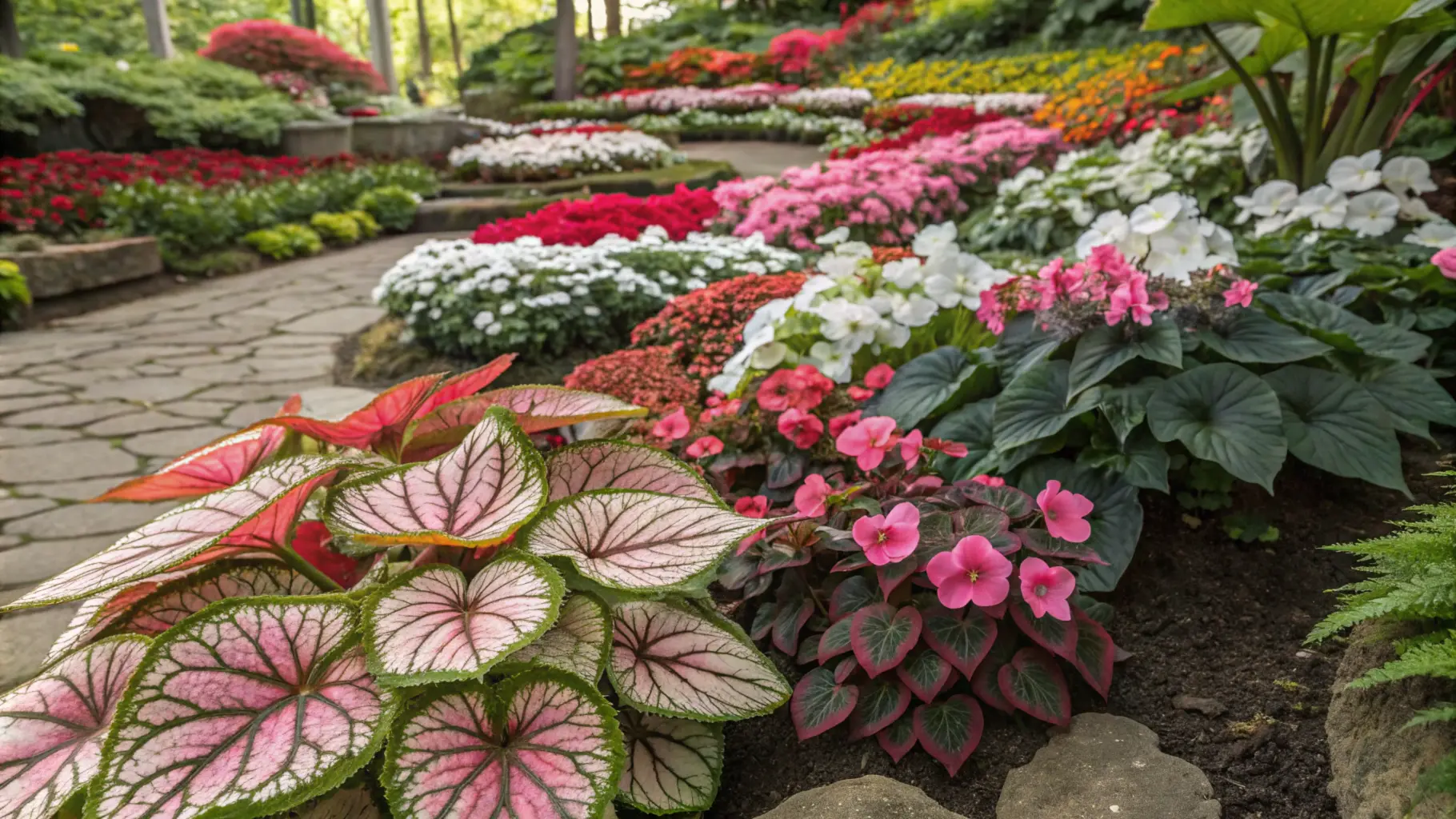Begonias are a delightful addition to any garden or home, known for their vibrant blooms and unique foliage. Whether you're growing them as houseplants or in shaded garden beds, begonias can add a splash of color and interest to your space. In this guide, we'll cover everything you need to know about planting, growing, and caring for begonias.
Basics of Begonias
Zones
Most begonia varieties thrive in zones 9-11, but they are commonly grown as annuals or houseplants in other regions.
Height/Spread
Begonias vary in size, from small 6- to 12-inch houseplants to bushy plants that can reach over 5 feet tall.
Exposure
Begonias can grow in sun to shade, depending on the variety.
Bloom Time
The bloom time for begonias varies. Wax and tuberous begonias typically bloom from early summer until frost, while some indoor varieties can bloom year-round.
Types of Begonias
Rex Begonias
A subgroup of rhizomatous begonias, Rex begonias are popular for their distinct foliage and are often grown as houseplants.
Tuberous Begonias
Tuberous begonias come in upright or trailing forms with green or burgundy leaves. Their flowers can be single, double, or ruffled, in shades of pink, yellow, orange, red, or white.
Wax Begonias
Wax begonias have succulent stems and shiny, rounded leaves. They grow in a mounded habit and bloom in shades of red, pink, or white.
Angel Wing Begonias
These begonias have attractive foliage with speckles or streaks on dark green leaves. The underside of the leaves is usually deep red.
Rhizomatous Begonias
Rhizomatous begonias have thick stems that grow horizontally near the soil surface. They are known for their interesting leaves and stems.
Planting Begonias

When to Plant
Transplant begonias after all threat of frost has passed. They are extremely frost-tender and can be damaged by temperatures below 50 degrees.
How to Plant
Plant wax begonia transplants 6 to 8 inches apart. For tuberous begonias, start the tubers indoors in a shallow tray with moist potting mix. Move them to a bright area once they sprout and plant outdoors when there is no longer a threat of frost.
Where to Plant
Choose a location with partial shade or filtered sunlight. Morning sun and afternoon shade are ideal, especially in hot climates. Ensure good air circulation to prevent powdery mildew.
Caring for Begonias
Watering
Regular watering is essential for healthy begonias. Keep the soil moist but not soggy to prevent root rot. Water at the base of the plant to keep the foliage dry and avoid fungal diseases.
Fertilizing
Apply a balanced water-soluble fertilizer once a month during the growing season. For foliage-focused varieties like angel wings, use a fertilizer higher in nitrogen.
Pruning
Prune rhizomatous and wax begonias to encourage full, compact growth. For cane begonias, pinch the tops when they are about 6 inches tall to promote bushier growth. Remove old, brown, or dead canes to the soil.
Winter Care
Begonias can be brought indoors for overwintering. Place them in a window with bright filtered light and increase humidity. Gradually acclimate them to indoor conditions to prevent stress.
Growing Begonias as Houseplants
Water and Humidity
Let begonias dry out slightly between waterings. Increase humidity by setting pots in a pebble tray with water.
Location
East-, west-, or south-facing windows are best. If burning occurs, move the plant farther from the window. Begonias also grow well under grow lights.
Potting
Begonias prefer to be slightly root-bound. Repot only when necessary, preferably in spring before moving them outside.
Begonias are versatile and beautiful plants that can thrive both indoors and outdoors with the right care. By following these tips, you can enjoy their vibrant blooms and unique foliage year-round. Happy gardening!
